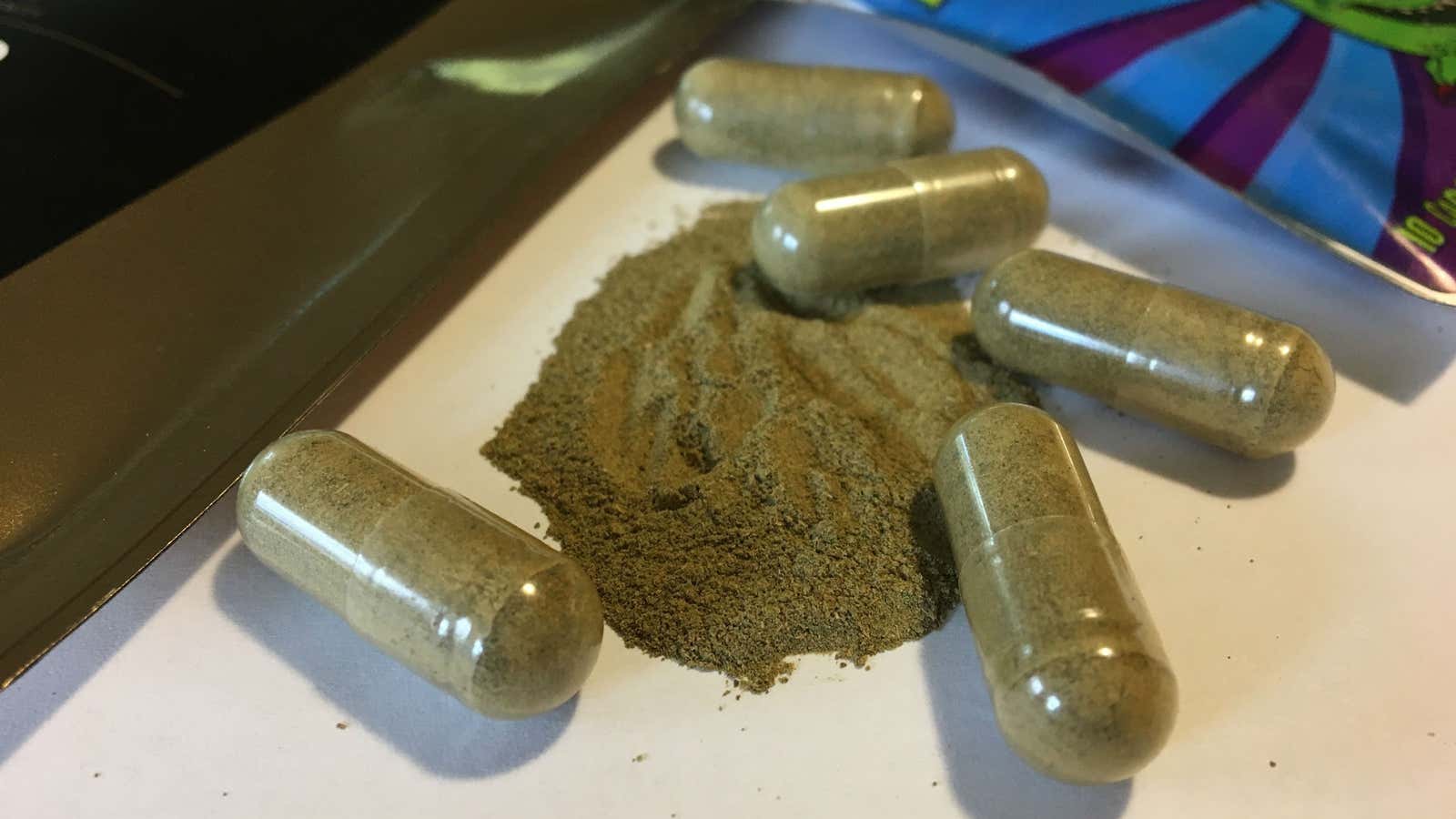Kratom is a plant-based alternative treatment used by many as a painkiller, and by some as a way to get off opioids. Because it’s a supplement, it’s not regulated in the US. But the country’s Food and Drug Agency just issued a broad public health warning against the stuff, using terms as strong as it has when referencing deadly drugs like heroin.
“I understand that there’s a lot of interest in the possibility for kratom to be used as a potential therapy for a range of disorders. But the FDA has a science-based obligation that supersedes popular trends and relies on evidence,” said Scott Gottlieb, the FDA’s commissioner, in a Nov. 14 statement on the agency’s “advisory about deadly risks associated with kratom.”
Kratom is derived from a southeast Asian evergreen tree, the Mitragyna speciosa, and is often sold in powders, pastes, and pills. It contains chemicals called mitragynine and 7-hydroxymitragynine, which at low doses can combine to act as a stimulant and at high doses can be a relaxant and painkiller. Ed Boyer, an emergency physician at the University of Massachusetts Medical Center who has studied the plant before, told CNN that although it works like opioids to alleviate pain, kratom doesn’t seem to affect a person’s breathing at all, whereas opioids slow down a person’s respiratory system.
Opiates are fatal when people build a tolerance for them and take them in larger and larger quantities to try to achieve the same high; instead, they end up stopping their breathing.
Gottlieb’s biggest concern is that instead of alleviating the opioid epidemic, kratom would fuel a parallel public health disaster. ”At a time when we have hit a critical point in the opioid epidemic, the increasing use of kratom as an alternative or adjunct to opioid use is extremely concerning,” he said. “There is no reliable evidence to support the use of kratom as a treatment for opioid use disorder. He noted that from 2010 to 2015, the number of annual calls made to US Poison Control centers regarding kratom rose from 26 to 263.
Kratom is legal in most of the US; the exceptions are the states Alabama, Arkansas, Indiana, Tennessee, and Wisconsin. Globally, it’s banned or controlled in 16 countries, including Thailand and Malaysia, where it grows naturally.
Last year, the US Drug Enforcement Agency tried to list the active chemicals in kratom as a Schedule 1 drug. However, backlash from groups like the American Kratom Association and the Botanical Education Alliance was so strong that the DEA abandoned the process.
According to the release, members of the FDA “are working to actively prevent shipments of kratom from entering the US,” and the agency is conducting its own research on the active ingredients in the supplement. Gottlieb called for external studies on the substance, as well. “I encourage you to conduct the research that will help us better understand kratom’s risk and benefit profile, so that well-studied and potentially beneficial products can be considered,” he said. (There was no clarification on how anyone in the US should carry out said studies if they can’t get any legal imports of kratom, though.)
“While we remain open to the potential medicinal uses of kratom, those uses must be backed by sound-science and weighed appropriately against the potential for abuse,” Gottlieb said. “They must be put through a proper evaluative process that involves the DEA and the FDA. In the meantime, based on the weight of the evidence, the FDA will continue to take action on these products in order to protect public health.”
